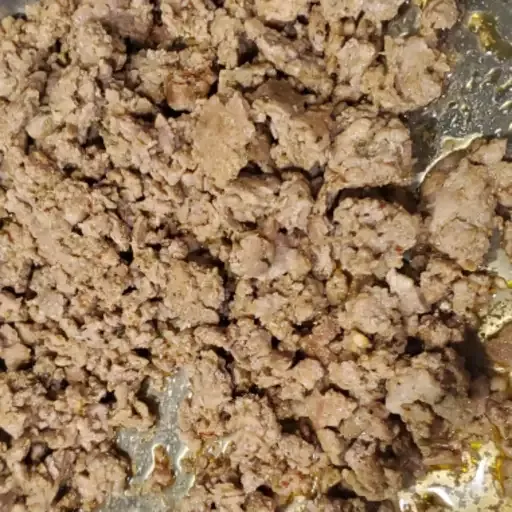Linguica (Smoked Portuguese Sausage)
Linguica, a smoked Portuguese sausage, is a beloved and iconic staple of Portuguese cuisine. This flavorful sausage is made from a blend of pork, garlic, paprika, and other spices, giving it a distinctive and rich taste. The name "linguica" comes from the Portuguese word for "tongue," referencing the shape of the sausage, which is typically long and slender. With its deep roots in Portuguese culture, linguica has also become popular in other parts of the world, particularly in areas with a strong Portuguese influence, such as Brazil and parts of the United States.

Prep Time:
30 mins
Cook Time:
1 hr 30 mins
Additional Time:
10 hrs 30 mins
Total Time:
12 hrs 30 mins
Servings:
10
Yield:
10 pork sausages
Ingredients
Directions
Step 1
Rinse fatback thoroughly and soak in warm water for 30 minutes. Remove and chop into small pieces.
Step 2
Pour olive oil in a small pan and saute garlic for 30 seconds to 1 minute. Do not let it brown. Remove from pan and put into a large bowl. Add fatback, pork butt, wine, paprika, milk, vinegar, salt, sugar, liquid smoke, marjoram, white pepper, black pepper, and red pepper and mix until everything is well combined. Cover and refrigerate for 8 hours, or overnight.
Step 3
Test the sausage flavor by frying a small bit of it in a pan and tasting it. Adjust spices if needed and place back in the refrigerator, covered, for 2 more hours.
Step 4
Run water through hog casings and rinse out as well as possible. Soak in warm water for 30 minutes.
Step 5
Set up sausage stuffing attachment on KitchenAid®. Squeeze out water from a length of casing. Tie one end in a knot, then roll onto sausage making fitting like a condom. Turn KitchenAid® onto medium speed. Feed cold sausage mixture a little at a time into the funnel. Use one hand to keep casing tight and one to feed meat mixture. Twist off links as you get to desired length. Repeat with remaining hog casings and sausage mixture.
Step 6
Add several handfuls of hot coal into a smoker to get a base temperature going, then let the temperature die down to about 140 degrees F 60 degrees C). You need a cold smoke to smoke the sausages so it doesn't cook and the skin doesn't get browned.
Step 7
When smoker has the right temperature, add hickory wood chunks. The temperature will spike again, so let it cool back down to 140 degrees F (60 degrees C).
Step 8
Using toothpicks, hang sausages in the smoker as far away from the direct heat source as possible. Maintain temperature at 140 degrees F (60 degrees C) as best as possible. It's difficult - don't sweat it if you get spikes. Just open the smoker door and let heat escape accordingly.
Step 9
Smoke until links are deep red and skin is starting to firm, about 1 1/2 hours.
Step 10
Remove from smoker and let rest for 30 minutes. Cook like any other sausage before, either pan-fry or grill, before serving.
Nutrition Facts (per serving)
431
Calories
31g
Fat
8g
Carbs
26g
Protein
Complement
Linguica is incredibly versatile and can be enjoyed in a variety of ways. It can be grilled, sautéed, or added to stews and soups, offering a burst of smoky, savory flavor to any dish. This sausage is often enjoyed on its own, served with crusty bread and a glass of wine, or incorporated into a range of traditional Portuguese dishes, such as feijoada and caldo verde. Whether enjoyed as a part of a hearty meal or as a standalone snack, linguica is a beloved part of Portuguese culinary tradition, cherished for its robust flavor and cultural significance.







